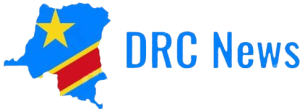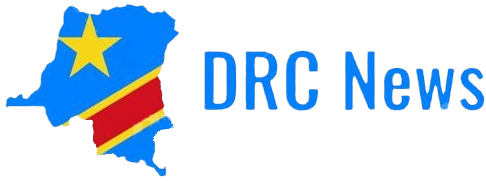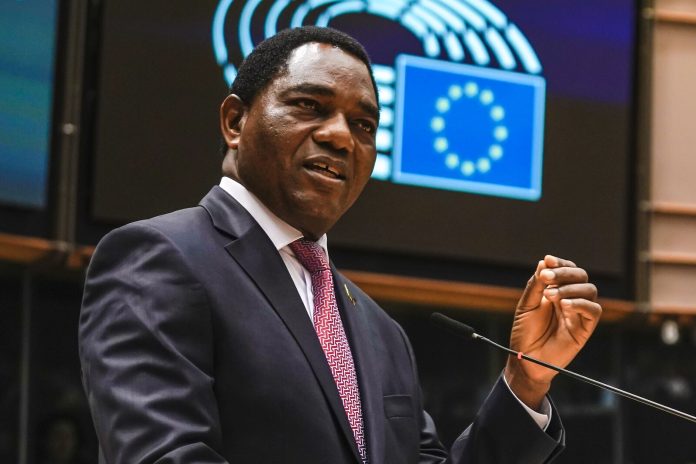When Hakainde Hichilema, a former accountancy CEO, was finally elected president of Zambia in 2021—on his sixth attempt—international observers breathed a collective sigh of relief. Here was a leader with a reputation for business integrity, seemingly well-suited to tackle the enormous challenges of a near-bankrupt country that had defaulted on its foreign debt just a year earlier.
Even Chatham House, a distinguished think tank, applauded Hichilema’s first year in office, writing, “[Hichilema] ushered in a new style which is not only distinct from his predecessor but also sets him apart from other regional leaders.”
This optimism appeared well-founded when Hichilema impressed French President Emmanuel Macron enough to secure his help in leading successful debt negotiations, including bringing China on board to restructure over $6 billion in sovereign debt.
Further bolstering his international standing, Hichilema was awarded an honorary doctorate in Scotland this summer for his “visionary leadership” and was granted a rare audience with King Charles III during the monarch’s cancer treatment—a significant gesture considering the circumstances.
Despite these glowing global endorsements, Zambia’s domestic reality paints a bleak picture. Despite ranking mid-table among African economies, Zambia’s financial situation is dire, with more than $18 billion in debt weighing on an economy with a GDP of only $29 billion. Inflation is double the central bank’s target, and the Zambian kwacha has depreciated by 42% in 2023 alone. Severe droughts have worsened agricultural output, leading Hichilema to lament that hunger in Zambia is “Biblical.” Despite inheriting a maize surplus from his predecessor, Hichilema opted to sell it internationally rather than retain it as a strategic reserve, resulting in widespread food shortages.
Meanwhile, the country continues to struggle with inadequate infrastructure, contributing to frequent water and power outages. A major cholera outbreak this year only added to the country’s woes.
At home, Hichilema’s government appears more popular in the West than within Zambia itself. The optimism that initially surrounded his administration is fading as political maneuvering, and allegations of corruption begin to cloud his leadership. At the midway point of his term, the Zambian government seems to be reverting to old habits, with efforts to stifle opposition and concerns that corruption remains as rampant as under previous administrations.
Hichilema was recently forced to accept the resignation of the head of the Anti-Corruption Commission, who himself faced accusations of accepting kickbacks. At the same time, Solicitor General Marshal Muchende has been under increasing pressure to step down over questions surrounding the $500,000 he received during negotiations for immunity deals related to the liquidation of the Konkola Copper Mines, a formerly state-owned enterprise.
Freedom House, an international watchdog, rates Zambia’s democracy as “partly free,” giving it a poor score of 54 out of 100. Worryingly, more individuals were imprisoned for defaming the president in Hichilema’s first year than during the six-year tenure of his predecessor, Edgar Lungu.
Even more alarming, Hichilema recently raised concerns about constitutional “lacunae” that he warned could delay the 2026 presidential elections unless amendments are made, though the nature of these changes remains unclear. This came on the heels of his decision to suspend three Constitutional Court judges who had denied his own court challenges against Lungu when Hichilema was in opposition—a move that has heightened tensions in Lusaka.
Adding to the growing concerns, Hichilema has targeted almost all opposition leaders for electoral exclusion, using Zambia’s court system as a tool in what critics call “lawfare.” Among these incidents is the controversial case of opposition MP Jay Jay Banda, who was allegedly abducted, with accusations pointing to the complicity of the police. Leaked recordings have surfaced, indicating government officials pressured Banda to conceal the identities of his kidnappers.
Surprisingly, allegations of police involvement in Zambian abductions are not new. Mubita Nawa, Zambia’s candidate for Secretary General of INTERPOL, was implicated in a similar case. Nawa, who had garnered the unanimous backing of African Union countries and emerged as a strong contender for the position, faces serious accusations involving the abduction, detention, and attempted extortion of two Indian businessmen, Vinod and Uddit Sadhu.
The Sadhus’ legal team has appealed to INTERPOL, claiming that these allegations make Nawa “unfit” for the role of its next secretary-general, a position for which he is currently shortlisted, backed by several African Union states.
In a formal letter sent to INTERPOL, the lawyers allege that Nawa played a key role in a conspiracy that resulted in the unlawful abduction of their clients in September 2022. At the time, Nawa was serving as the deputy director of Zambia’s Criminal Investigation Department (CID). The letter outlines how the Sadhus were allegedly accosted by assailants disguised as police officers, forced into an unmarked vehicle, and taken to a private residence in Lusaka. There, they were reportedly threatened and coerced until one of the captives managed to alert authorities via a concealed mobile phone.
Following this, the Sadhus claim they were transported to a police station, where further intimidation continued. The Sadhus insist that Nawa, alongside other figures, played a significant role in these actions.
The two businessmen are owners of Sun Pharma, a company awarded approximately £105 million by Zambia’s Supreme Court following a dispute over a loan with the Development Bank of Zambia. Despite the court ruling, the payment has yet to be made, with the Sadhus alleging that Nawa and others within the government have pressured them to forgo the awarded sum.
In response to these accusations, Zambia’s police force has issued a statement, firmly denying the claims and dismissing them as a “malicious attempt” to damage Nawa’s reputation before the upcoming INTERPOL election. The statement adds that the Sadhus are under investigation for allegedly manipulating the share structure of Sun Pharma, calling their claims part of a “smear campaign.”
While such revelations may shock outsiders, they are not the only scandals involving Zambian police this year. Another case that attracted international attention involved the seizure of an Egyptian private jet carrying fake gold and cash at Lusaka’s main airport. The BBC reported that several Zambian officers involved in the investigation received up to $200,000 each as bribes from the Egyptian passengers, allowing the plane to depart without making any arrests.
Jack Mwiimbu, Zambia’s Minister for Home Affairs and Internal Security, is at the center of these controversies. Mwiimbu’s influence extends far beyond his official role—he has acted as the head of government in Hichilema’s absence and represented the country at international summits. Yet, his leadership has not been without criticism. His handling of Zambia’s notorious political “cadres”—gangs of young men aligned with political parties and often involved in extortion—has raised questions about whether the police have effectively become the largest cadre of all.
If Hichilema hopes to preserve his reputation in the West and secure a second term at home, he will need to unite the various factions within his government. That includes ensuring that Zambia’s police and security apparatus operate under his direct control and the rule of law.
CREDIT: International Policy Digest


